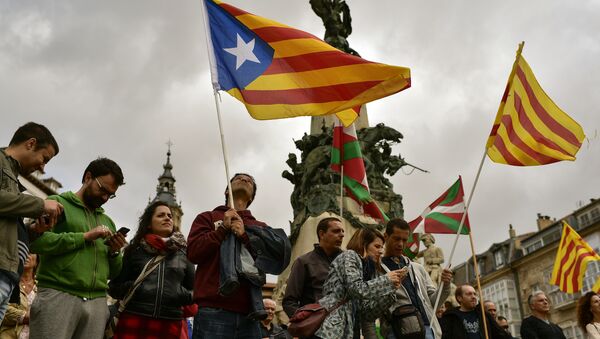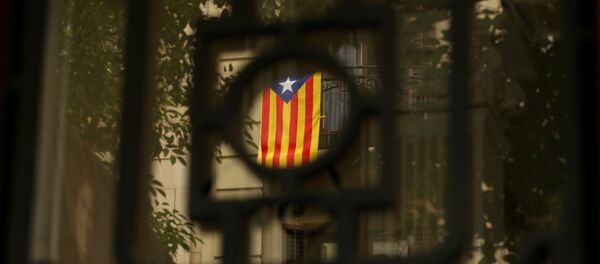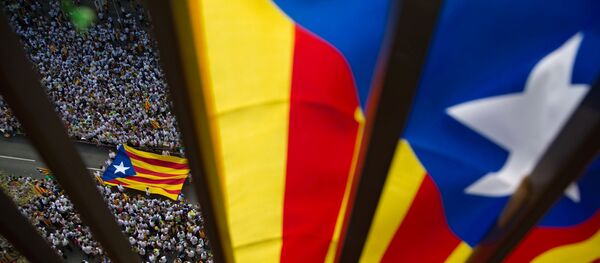Sputnik Mundo talked with some of the estimated 400,000 people who took part in the celebrations, which this year turned into a massive rally for independence.
“The movement for independence has always been there but previously it was more nationalistic while now it brings together all those who live here, not only indigenous Catalans,” architect Oriel Amat said.
He added that the Catalans’ desire to secede from the rest of the country is more about common sense than “race or flag.”
Interior designer Neus Molina described Catalonia as an economic powerhouse, one the country’s entire system of social benefits and infrastructure depends on.
“This is a very affluent region, which accounts for a hefty 20 percent of the country’s GDP,” she emphasized.
She described the authorities’ attempts to use pressure against the managers of newspapers and printshops that publish ballot papers as a violation of the people’s fundamental right to freely express their opinion in a referendum and that the repressive methods used by the Spanish government were in stark contrast to Britain’s handling of a similar situation.
“The British government facilitated the whole process and, as a result, the majority of people in Scotland voted to stay in the United Kingdom. This is what democracy is all about, this is what the Catalan people want,” Molina emphasized.
Oriel Amat joined in saying that even a negative outcome in next month’s plebiscite would still let everyone know what people really think.
“However, Madrid simply refuses to talk to us. There are people who are ready to talk, but not in the government,” he complained.
According to recent polls, anywhere from 70 to 80 percent of the autonomous community’s residents support the referendum and believe that Madrid should allow the vote to happen.
Catalonia has been seeking independence from Spain for years. On November 9, 2014, about 80 percent of the Catalans who took part in a non-binding referendum on the region's status as part of Spain voted in favor of Catalonia becoming an independent state.
The vote was, however, ruled unconstitutional by the authorities in Madrid.
On June 9, the president of the autonomous region, Carles Puigdemont, said that Catalonia would hold a unilateral referendum on independence on October 1, 2017, prompting criticism from Madrid.




